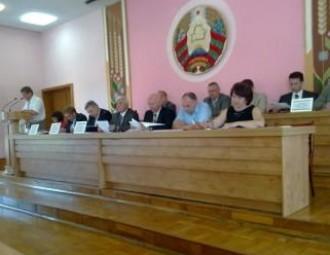Aleh Trusau: It is both necessary and feasible to compel officials to know Belarusan

A suggestion for the obligatory proficiency in the Belarusan language for public servants is a brick into the revival of Belarus.
This opinion was shared to the EuroBelarus Information Service by the chairperson of the Belarusan Language Society (BLS) Aleh Trusau.
Let us recall that recently Liberal Democratic Party (LDP) has suggested adopting a law on the obligatory proficiency in the state languages by the officials.
“We are the only country on earth where public servants either have poor or no proficiency in their mother tongue at all. We need to adopt a law where it should be stated clearly and distinctly – if you are a civil servant (Council of Ministers, President Administration, regional executive committee, city executive committee, district administration and others), then you have to know and be able to use Belarusan language”, - says the statement.
As the leader of the LDP Siarhei Haidukevich assumes, the development and the consolidation of the native language is the main component of the state sovereignty. Aleh Trusau fully agrees with this postulate.
Language, on the whole, is the basement of the nation existence, - says the head of the BLS. –Language unites Belarusans. Everybody has his own religion; half of the population is “orthodox atheists” at all. Only the language keeps Belarusans within the boundaries of a certain territory. As how Belarus was formed in 1918-1919? They took the results of the population census of 1897, and outlined certain territory where most people identified themselves as Belarusans, and their language – Belarusan. They outlined and proclaimed themselves BNR, and BSSR afterwards. Vilnius, Smolensk, and Briansk were part of this territory. And what do we have now? Less than a half of what we had in the late 19th century. Because on these territories the language was almost lost. And local community, having lost their language, identify themselves as either Poles or the Russians. Lost their language – lost everything.
Aleh Trusau thinks that to make the officials know the language is both necessary and achievable, and reminds that according to the legislation, if the citizen appeals to the public servant in Belarusan, the official should reply in Belarusan.
How can the officials be made to learn and know their mother tongue? According to Trusau, it is enough to accept the ruling of the Council of Ministers, amend the law on civil service. And add one particular point: that the person who joins the civil service is obliged to know two state languages. It can be confirmed, for instance, during the interview.
“We can hold if not an exam in Belarusan, but at least an interview where one can talk on a variety of topics in Belarusan and it will be immediately clear to which extent does he know the language”, - considers the leader of the BLS.
He emphasizes that the suggestion of the LDP for the obligatory proficiency in Belarusan language by the public servants is purely reasonable: “The suggestion of the LDP about the obligatory proficiency in Belarusan by the public servants is a brick into the revival of Belarus. Though, to what extent it will develop – we’ll have to see”.
-
03.01
-
07.10
-
22.09
-
17.08
-
12.08
-
30.09



























